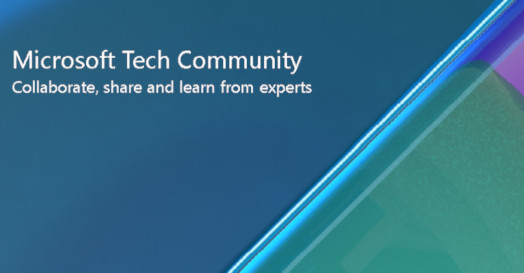Azure Service Fabric 8.1 Third Refresh Update (3.1) Release

Azure Service Fabric 8.1 Third Refresh Update (3.1) is now available!
The Azure Service Fabric 8.1 Third Refresh Update (3.1) release includes stability fixes for the runtime, standalone, and Azure environments.
This release will only be available through manual upgrades. Clusters set to automatic upgrades will not receive this release. For how to configure upgrades, please see classic or managed documentation.
Packages and Versions
- Service Fabric Runtime
- Ubuntu 16 - 8.1.340.1
- Ubuntu 18 - 8.1.340.1
- Windows - 8.1.337.9590
- Service Fabric for Windows Server
- Service Fabric Standalone Installer Package - 8.1.337.9590
- .NET SDK
- Windows .NET SDK - 5.1.337
- Microsoft.ServiceFabric - 8.1.337
- Reliable Services and Reliable Actors - 8.1.337
- ASP.NET Core Service Fabric integration - 8.1.337
- Java SDK
- Java for Linux SDK - 1.0.6
- Service Fabric PowerShell and CLI
- AzureRM PowerShell Module - 0.3.15
- SFCTL - 11.0.0
Current Breaking Changes
- Guest Executable and Container Applications: Guest executable and container applications created or upgraded in Service Fabric clusters with runtime versions 7.1+ are incompatible with prior Service Fabric runtime versions (e.g. Service Fabric 7.0).
Following scenarios are impacted:
- An application with guest executables or containers is created or upgraded in an Service Fabric 7.1+ cluster.
The cluster is then downgraded to a previous Service Fabric runtime version (e.g. Service Fabric 7.0).
The application fails to activate. - A cluster upgrade from pre-SF 7.1 version to Service Fabric 7.1+ version is in progress.
In parallel with the Service Fabric runtime upgrade, an application with guest executables or containers is created or upgraded.
The Service Fabric runtime upgrade starts rolling back (due to any reason) to the pre-SF 7.1 version.
The application fails to activate.
To avoid issues when upgrading from a pre-SF 7.1 runtime version to an Service Fabric 7.1+ runtime version, do not create or upgrade applications with guest executables or containers while the Service Fabric runtime upgrade is in progress. - The simplest mitigation, when possible, is to delete and recreate the application in Service Fabric 7.0.
- The other option is to upgrade the application in Service Fabric 7.0 (for example, with a version only change).
If the application is stuck in rollback, the rollback has to be first completed before the application can be upgraded again.
- An application with guest executables or containers is created or upgraded in an Service Fabric 7.1+ cluster.
- .NET Core 2.x Support: .NET Core runtime LTS 2.1 runtime is out of support as of Aug 21, 2021, and .NET Core runtime 2.2 is out of support from Dec 2019. Service Fabric releases after those dates will drop support for Service Fabric apps running with .NET Core 2.1, and .NET Core 2.2 runtimes respectively. Current apps running on .NET Core 2.x runtime will continue to work, but requests for investigations or request for changes will no longer receive support. Service Fabric .NET SDK will take a dependency on .NET runtime 3.x features to support Service Fabric .NET Core apps.
- Ubuntu 16.04 Support: Ubuntu 16.04 LTS reached it's 5-year end-of-life window on April 30, 2021. Service Fabric runtime will drop support for Ubuntu 16.04 after that date as well. Current applications running on it will continue to work, but requests for investigations or requests for change will no longer receive support. We recommend moving your applications to Ubuntu 18.04.
For more details, please read the release notes.
Published on:
Learn moreRelated posts
Azure Migrate Execute
From Manual Testing to AI-Generated Automation: Our Azure DevOps MCP + Playwright Success Story
In today’s fast-paced software development cycles, manual testing often becomes a significant bottleneck. Our team was facing a growing backlo...
Cognitive services and Azure ML for Dataflows will be fully retired by September 15th, 2025
This blog is outlining the depreciation announcement for Azure ML and Cognitive services using dataflows.
Azure Developer CLI: From Dev to Prod with One Click
This post walks through how to implement a “build once, deploy everywhere” pattern using Azure Developer CLI (azd) that provisions...
Azure Migrate assessments
AI Builder – Invoice processing and Invoices document type to begin using Azure
Starting on July 21, 2025, the prebuilt model invoice processing and invoices document type (built on Azure Document Intelligence 4.0) will be...
Dataverse: Learn How to Implement Azure Durable Functions – Payment Scenario
Azure Durable Functions is an extension of Azure Functions that offers specialized capabilities, including statefulness, orchestration, handli...
Build reliable Go applications: Configuring Azure Cosmos DB Go SDK for real-world scenarios
When building applications that interact with databases, developers frequently encounter scenarios where default SDK configurations don’...